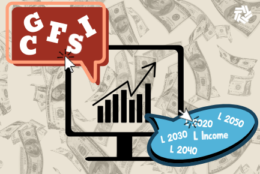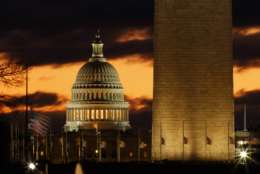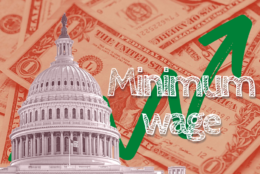Federal Report
-
Do you actively manage your federal Thrift Savings Plan account, or do you leave it to the pros?
February 08, 2022 -
Just because they can send you email or phone you at all hours day and night doesn't mean you have to answer.
February 04, 2022 -
After every war, recession or natural disaster, politicians get together to decide who — other than them — was to blame. If the past is prologue, one of their first and primary targets will be the federal workforce.
February 03, 2022 -
Is it worth considering working longer to protect your buying power in retirement? Or is that too horrible a concept? Many will probably conclude it's worth putting it high up on their retirement planning checklist.
February 02, 2022 -
Current workers who are at or near retirement eligibility may have to decide whether they are better off retiring (to get higher COLAs) or hanging on in hopes politicians will see to it their pay keeps pace with the rising costs of just about everything.
February 01, 2022 -
The minimum wage for federal employees and contractors is now $15/hour, and the administration is calling it a victory for pay equity. But experts say there's a lot more work to do to, especially around equitable recruitment and hiring.
January 31, 2022 -
The Biden administration has a lot of labor itches to scratch, but they're not totally in control.
January 28, 2022 -
What’s the difference between relaxing, not panicking, and sleeping at the wheel? What do feds do between now and when they plan to retire and, more importantly, when they actually start tapping their TSP accounts?
January 27, 2022 -
When it comes to planning your federal retirement, there is no such thing as a dumb question. Some may seem strange, off the way, but if you’ve got a question there is probably an answer you didn’t know about. Or one that surprises you.
January 26, 2022 -
What many don’t realize is that while remote work is still a novelty for many, if not most, it is standard-operating-procedure for an unknown number of feds. Some of them have been doing it for years.
January 25, 2022 -
Kiran Ahuja, the director of the Office of Personnel Management, explains why making sure the federal workforce earns a minimum wage of $15 per hour is so important.
January 21, 2022 -
With all the scores hovering around average, what does the new federal employee Pulse Survey really say?
January 21, 2022 -
Some new retirees suffer an unexpected and extended clash-flow problem. It can have an impact on their standard of living, which includes important stuff, like food, the electric bill and vacations. That can continue until their post-retirement income is straightened out.
January 20, 2022 -
Tom O’Rourke, a Washington-area tax and estate attorney and former IRS lawyer, shares his plan to allow federal employees to double their money and to save more than $1,000 in taxes at no risk.
January 19, 2022 -
A growing number of savvy feds are and have been rolling outside money into the TSP at an impressive and growing scale.
January 18, 2022











